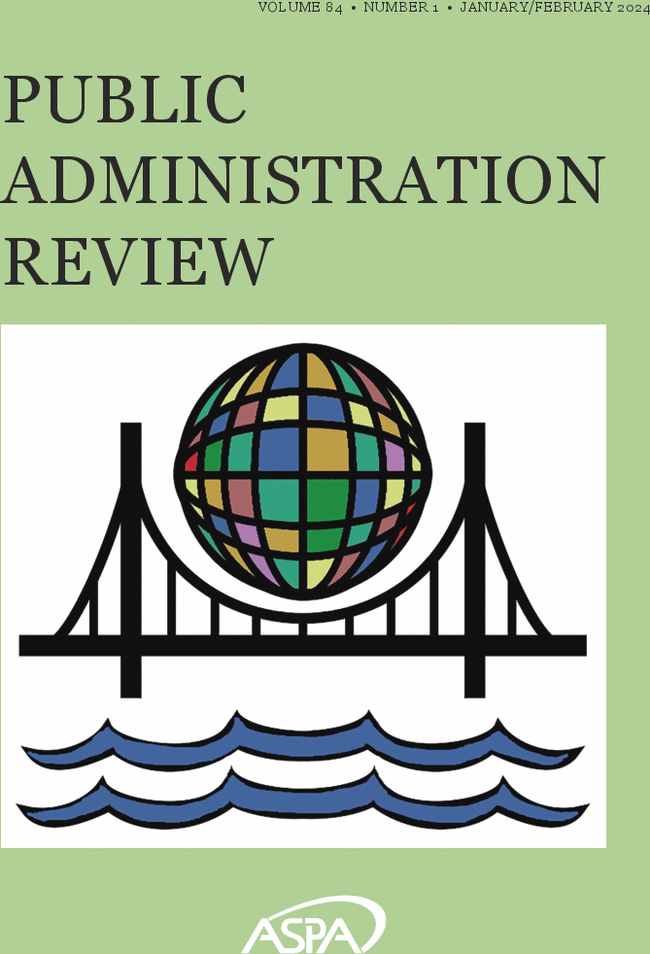Political accountability and social equity in public budgeting: Examining the role of local institutions
IF 6.1
1区 管理学
Q1 PUBLIC ADMINISTRATION
引用次数: 0
Abstract
This paper examines how local institutions in U.S. municipalities can affect budget allocations for socially disadvantaged groups, specifically focusing on eight key institutions related to electoral rules, power dynamics, and bureaucratic authority. Additionally, we develop a composite index to assess the overall level of (de)politicization within the local institutional framework. Theoretically, local institutions can shape public officials’ political accountability and administrative discretion during policy processes, thereby influencing their decision‐making on budget allocations. Empirical analyses primarily use data from ICMA's multiround national surveys and employ the historical background of municipalities as an instrumental variable (IV) to address potential endogeneity problems associated with local institutions. We find that local institutions that strengthen politicians’ political accountability to citizens lead to greater budget allocations for redistributive social welfare, thereby fostering social equity in public budgeting. Conversely, the institutions that enhance the authority of senior bureaucrats negatively affect budget allocations for redistributive social welfare.公共预算编制中的政治问责和社会公平:审查地方机构的作用
本文研究了美国市政当局的地方机构如何影响对社会弱势群体的预算分配,特别关注与选举规则、权力动态和官僚权威相关的八个关键机构。此外,我们还制定了一个综合指数来评估地方机构框架内(去)政治化的整体水平。从理论上讲,地方机构可以影响公职人员在政策制定过程中的政治责任和行政自由裁量权,从而影响他们对预算分配的决策。实证分析主要使用 ICMA 的多轮全国调查数据,并将市政当局的历史背景作为工具变量(IV),以解决与地方机构相关的潜在内生性问题。我们发现,加强政治家对公民的政治责任的地方机构会增加用于再分配社会福利的预算拨款,从而促进公共预算中的社会公平。相反,加强高级官僚权威的制度则会对用于再分配社会福利的预算分配产生负面影响。
本文章由计算机程序翻译,如有差异,请以英文原文为准。
求助全文
约1分钟内获得全文
求助全文
来源期刊

Public Administration Review
PUBLIC ADMINISTRATION-
CiteScore
15.10
自引率
10.80%
发文量
130
期刊介绍:
Public Administration Review (PAR), a bi-monthly professional journal, has held its position as the premier outlet for public administration research, theory, and practice for 75 years. Published for the American Society for Public Administration,TM/SM, it uniquely serves both academics and practitioners in the public sector. PAR features articles that identify and analyze current trends, offer a factual basis for decision-making, stimulate discussion, and present leading literature in an easily accessible format. Covering a diverse range of topics and featuring expert book reviews, PAR is both exciting to read and an indispensable resource in the field.
 求助内容:
求助内容: 应助结果提醒方式:
应助结果提醒方式:


